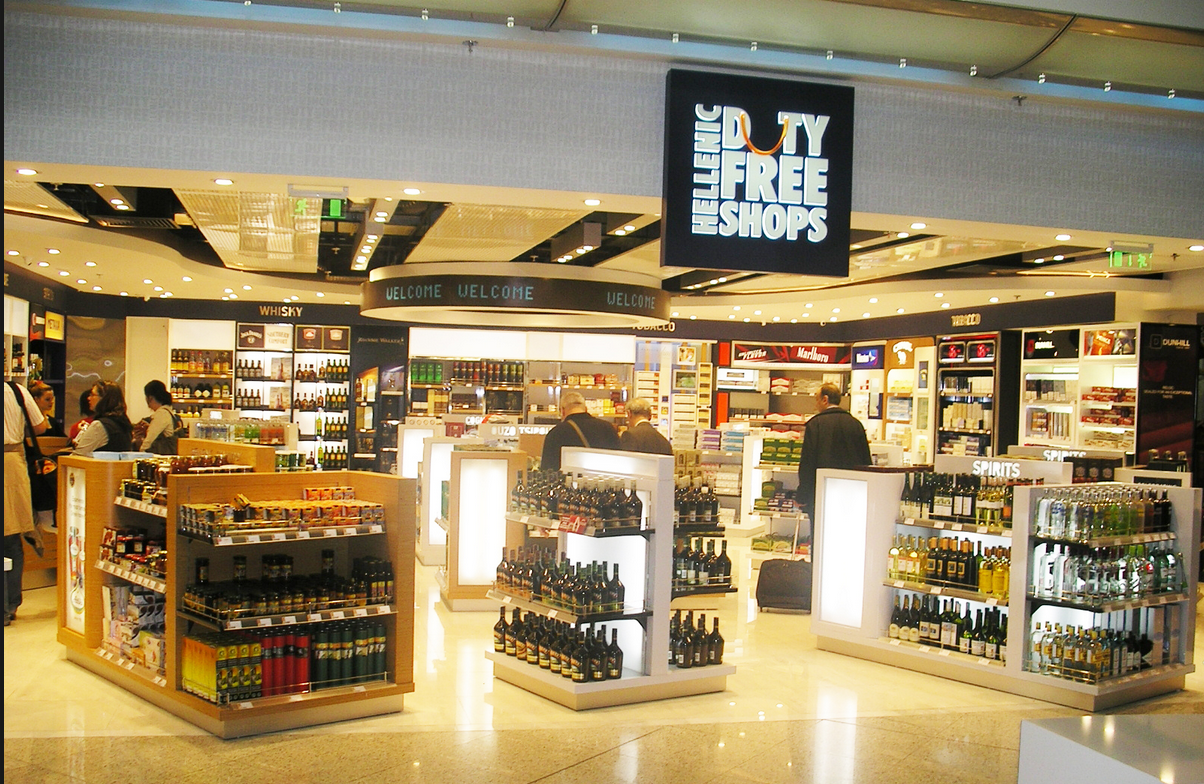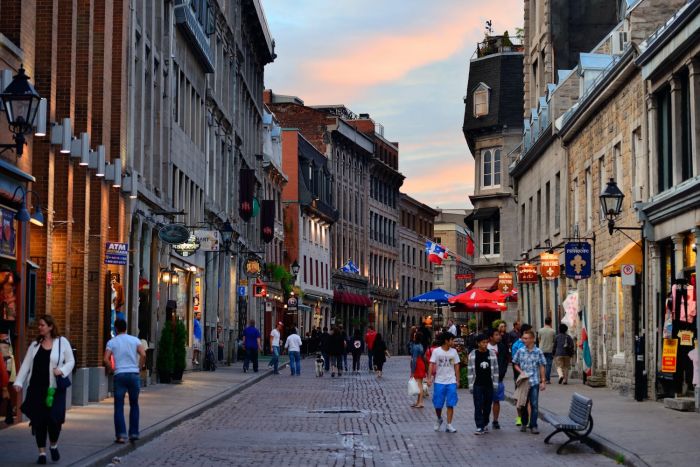
Vacations may be for the light of heart, but duty-free shopping is serious business. In 2013, sales at airport duty-free shops alone grossed more than $34 billion. Since the first duty-free shop (a liquor counter) opened at the London Airport in 1959, duty-free markets have spread around the globe. They can now be found in airports’ international terminals, on airplanes and cruise ships, and at seaports and international borders all over the world.
“Duty” is simply another word for “tax” — so “duty-free” means tax-free. In this case, that moniker doesn’t refer to sales tax; instead, it’s a nod to the tax that retailers pay on imported goods. Because items purchased in duty-free shops are destined for export — goods sold can only be purchased by travelers who are leaving the country — the idea is that retailers shouldn’t have to pay import taxes.
This means the “duty-free” label doesn’t necessarily guarantee customers a better deal; it just means the seller isn’t required to pay customs tax. Many stores still charge customers fairly high prices (often just below the regular retail rate).
Still, duty-free shopping can mean big pay-offs for the well-informed traveler. Follow the strategies below to avoid getting ripped off while reaping duty-free benefits.
Worldwide Shopping: Doing Duty-Free Right
1. Stick to the classics. For American travelers, liquor and tobacco products are generally the best duty-free buys. That’s because these items carry particularly high taxes when purchased inside the U.S., so tax-free shopping has a very real pay-off.
2. Know the exchange. The best deals are generally found in locations with local currency that is weaker than the currency wherever you’re traveling to or from. That’s largely because some duty-free shops will raise prices in areas with stronger currency, such as the UK — meaning your money won’t go as far.
3. Take advantage of the selection. Duty-free retailers often feature brands that aren’t available in many people’s home countries, partly because some manufacturers test-market new products in duty-free stores. The term “travel exclusive” or “travel retail” on a box or label signifies that the product is only available via the duty-free market.
4. Go local. Location-specific products such as artisan crafts, gourmet chocolate or coffee, and other products manufactured in a particular region are great buys for two reasons: 1. These items may not be available outside their locations of origin. 2. The absence of tax will likely make local goods more affordable than they are in other shops or museum stores.
5. Do some research. If shopping for luxury goods such as bags, perfumes, and sunglasses, scope out prices online ahead of time. That way you’ll know a good deal when you see it. This is especially important because prices vary by both country and store — in some places, luxury items might be discounted below their regular retail prices; in others, this might not be the case.
6. Seek out cosmetics. High-end brands of makeup and skincare products can be marked down by as much as 50 percent in duty-free shops. For less high-end products, it’s probably most cost-effective to buy items online.
7. Use up local currency. If it would be a hassle to exchange the local currency back at home, consider using it up in duty-free shops instead of on high conversion fees.
8. Read up on your destination’s rules. It pays to know the regulations wherever you’re traveling. For instance, the Vatican is entirely duty-free, so it’s a goldmine for those seeking religious art. The UN complex in New York offers duty-free shops in the lobbies. Some governments will allow travelers to buy items from normal retail stores and then present their receipts to receive a tax refund. And travelers can get stuck with unexpected taxes if they break the duty-free rules for the country they’re traveling into or out of. To learn more, contact the country’s customs or border patrol agency.
9. Stay away. For the most part, travelers seeking shopping deals will need to remain in foreign territory for at least 48 hours in order to qualify for duty-free savings. Need somewhere to be for those two days? Munich, Bangkok, Copenhagen, Florence, and Dubai are all great cities that are easily explored in 48 hours.
10. Know what to avoid. It’s tough to find a good deal on duty-free electronics—and even if the price seems right, the quality of the product might not be. Clothing that wasn’t made locally also tends to be cheaper online. Other items are simply not transportable: In the U.S., for example, travelers are not permitted to bring Haitian animal hide drums or any products containing dog or cat fur into the country.
11. Be mindful of limits. For example, U.S. states can restrict the amount of alcohol that travelers import from duty-free shops. In general, the limit is one liter per person for all types of alcohol (Unless you’re returning from the Caribbean, in which case two liters is the general limit). Returning U.S. citizens are also limited to importing 200 cigarettes and 100 cigars; this is true regardless of whether the items were purchased duty-free. Consult your home country’s customs rules in advance of traveling so you don’t risk having to surrender a bottle of Hennessy upon arriving home.
12. Understand security restrictions. Flights into and out of the U.S. and UK have particularly strict rules when it comes to transporting liquids; in these countries, all liquids must pass through security. The U.S. Transportation Security Administration (TSA) recommends purchasing duty-free liquids, such as perfumes or liquor, at the last airport you visit prior to arriving in the U.S. — this will help ensure you aren’t flagged for violating the three-ounce carry-on rule for liquids. Knowing the rules will help you spend less time in airport security.
13. Keep receipts handy. This will help avoid delays at customs or security. Leave receipts in easy reach until arriving home.
14. Beware the surcharge. U.S. citizens returning after being in foreign territory for at least 48 hours can generally import up to $800 worth of duty-free merchandise (Family members who share a household and are traveling together can collectively import up to $1,600-worth of untaxed merchandise). The next $1,000-worth of purchases is subject to a 3% tax. Any individual importing more than $1,800-worth of merchandise will pay taxes of up to 25% for anything over the $800 limit. These numbers are valid on a monthly basis, so once the $800 limit is met, travelers need to wait 30 days before claiming an additional exemption.
A little bit of know-how and some research up front can pay off big time on the duty-free market. Know the rules, keep these strategies in mind, and enjoy the benefits of global shopping!














